Where is Ghana?
Located in Western Africa, Ghana has a 2,420.00 km border with Burkina Faso (602 km), Cote d'Ivoire (720 km) and Togo (1,098 km). It has a 539.00 km coastline. The country has disputed maritime borders between Ghana and Cote d'Ivoire.
Accra is the capital of Ghana. As of 2012, Accra had a population of 2.27 million. The city is a tourism hub for the country which hosts a variety of tourist attraction destinations such as the Black Star Square, Osu Castle, Labadi Beach Hotel, the National Museum, and Ussher Fort. Accra enjoys a tropical savanna climate. Its wettest months are April to mid-July while the hottest month is March. The city of Ghana has a rich culture and magnificent historical sites like James Fort.
Read more on Ghana's CapitalGhana is an African country covering 238,533.00 km2 of which 4.61% is water and 227,533.00 km2 is land. This makes it the 80th largest country in the world and slightly smaller than Oregon. Its geographic coordinates are 8 00 N, 2 00 W and Accra is the capital city.
The name "Ghana" comes from the medieval West African kingdom of the same name.
Its ISO code is GH.
Geography
Ghana has a mean elevation of 190 m above sea level.
It has a tropical climate that is dry along the southeast coast and in the north, and humid in the southeast. Its terrain is mostly made up of low plains with a plateau in the south-central area.
Population
Ghana has a population of 26,908,262 making it the 48th largest in the world.
Asante, Ewe, Fante, Boron, and Dagomba all spoken; other languages are spoken by 31.2% of the population. The majority ethnic group is Akan, followed by Mole-Dagbon and Ewe. The majority of the country identifies as Christian.
Ghana is a multilingual nation with over 70 spoken languages and dialects. However, the lingua franca and official language used in the country is English. Linguistically, English belongs to the Indo-European languages. It uses the ISO basic Latin alphabet. Besides English, the popular native language in Ghana is Akan. About 47.5% of the total population of Ghana speaks Akan. In addition to Akan, other local languages include Dagbani, Fulani, Guan, Gurma, and Bissa. Examples of minority languages in the country are Chinese and Hindi. There are also sign languages for the deaf community in Ghana such as the Ghanaian Sign Language which is the American Sign Language.
Read more on Ghana's LanguagesThe dialing code for the country is 233.
Government
Ghana is an independent country. It gained independence from the United Kingdom in 1957. Its constitution was last ratified in 1992.
Ghana is a democratic republic led by a president. The president is the head of government, the state, and the commander-in-chief of the armed forces. The president leads with the support of a cabinet, parliament, and judiciary. Ghana has a multi-party political system. It holds elections every four years. The most recent elections were held on December 7, 2016. The president can be elected for a maximum of two terms. The official residence of the president is at Flagstaff House in Ghana’s capital of Accra. Parliament House is also situated in Accra at East Ridge.
Read more on Ghana's GovernmentEconomy
Factoring in Purchasing Power Parity, Ghana's GDP is $121,000,000,000.00 (USD) with $4,400.00 (USD) per capita. This makes it the 81st largest economy and its citizens the 167th richest in the world. The currency of Ghana is the Cedi (GHS).
Its major export partners are India, Switzerland, and China. Its main exports are oil, gold, cocoa, and timber. Its major import partners are China, Nigeria, and the Netherlands. Its major imports include capital equipment, refined petroleum, and foodstuffs.
Flag
The national flag of Ghana was adopted in 1957. An artist by the name Theodosia Okoh designed it. The flag consists of the colors red, green, and yellow. Additionally, there is a black star at the center of the yellow portion of the flag. The colors of the flag are Pan-African colors. The red color represents the blood shed by the people who struggled for the independence of Ghana. The yellow color symbolizes the minerals in the country while green is the vegetation. The flag is a national symbol of unity. It is also used by the air force during war or official duty.
Read more on Ghana's FlagThis page was last modified on January 17th, 2018
More on Graphicmaps
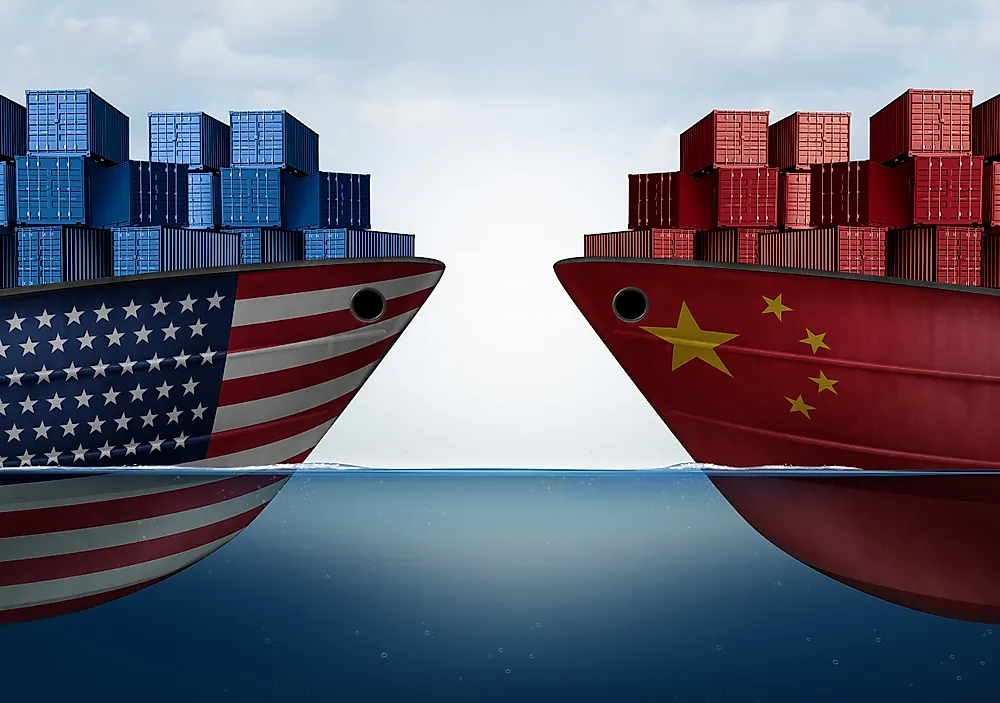
Published on 2019-11-06
What is a Trade Embargo?
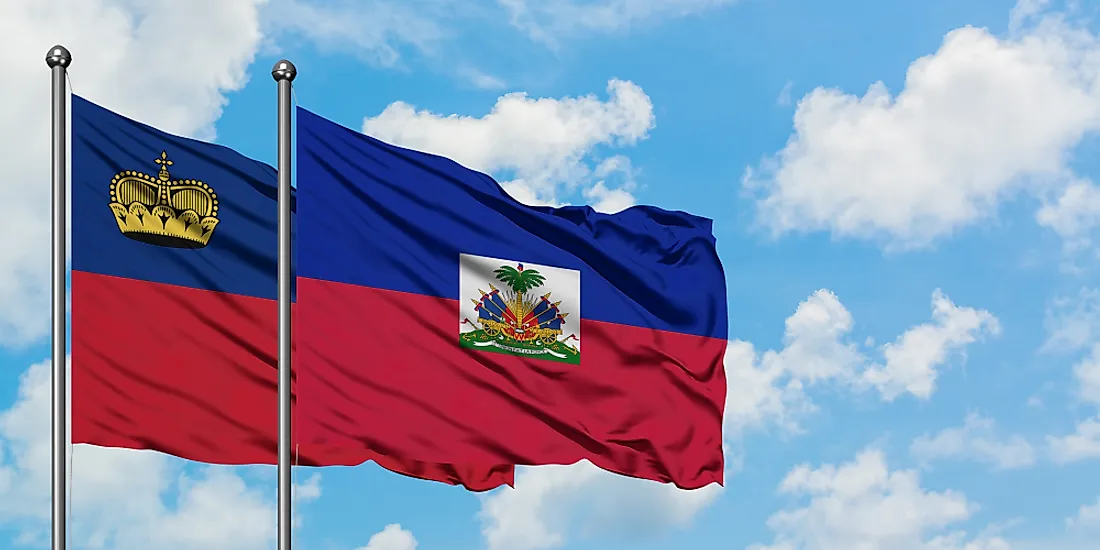
Published on 2019-11-04
Which Two Countries Used to Have the Same Flag?

Published on 2019-09-16
What Is the Only Two-Sided State Flag?
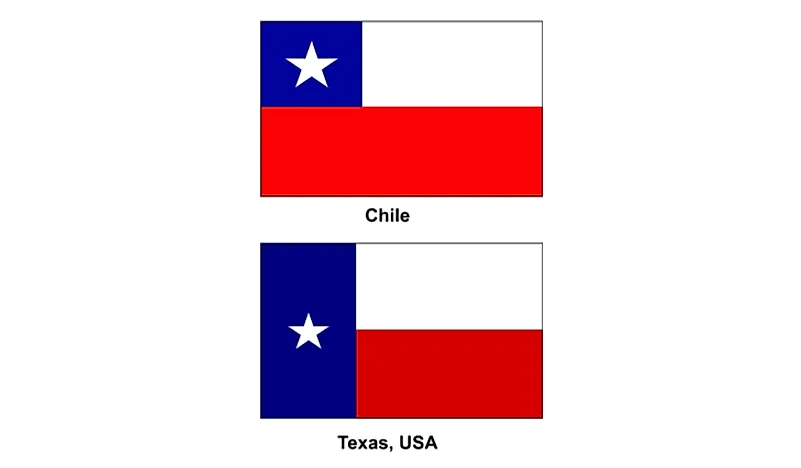
Published on 2019-09-16
Which Country Flag Looks Like the Texas Flag?
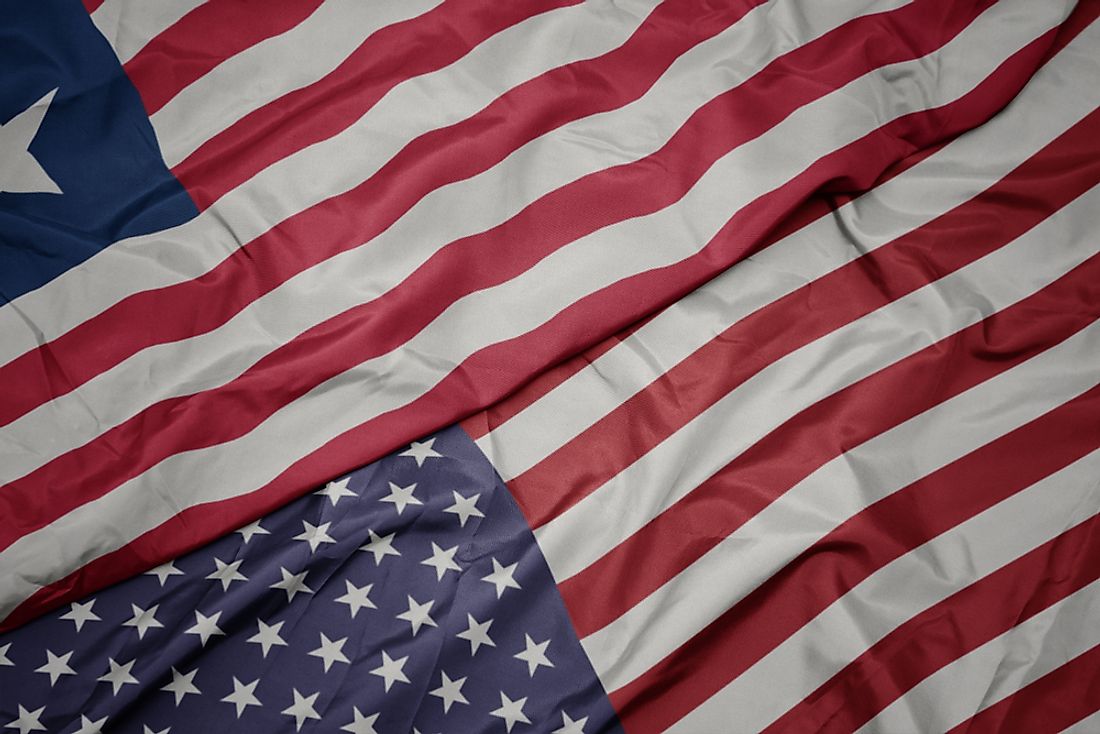
Published on 2019-08-29
Flags That Resemble the US Flag
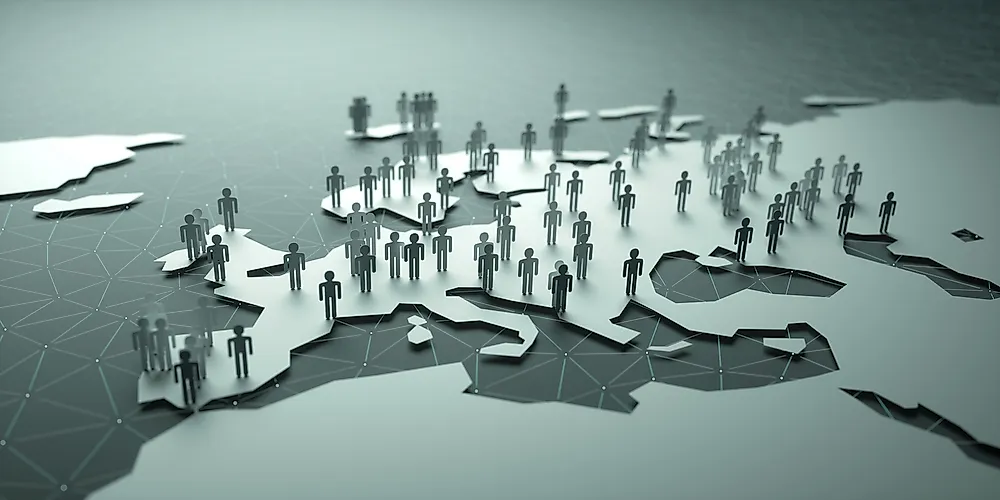
Published on 2019-08-20
